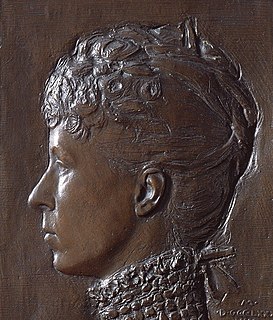A Quote by Camille Paglia
The number one problem in academia today is not ignorant students but ignorant professors, who have substituted narrow "expertise" and "theoretical sophistication" (a preposterous term) for breadth and depth of learning in the world history of art and thought... Art is a vast, ancient interconnected web-work, a fabricated tradition. Overconcentration on any one point is a distortion. This is one of the primary reasons for the dullness and ineptitude of so much twentieth-criticism, as compared to nineteenth-century belles-lettres.
Quote Topics
Academia
Ancient
Any
Art
Art Is
Breadth
Century
Compared
Criticism
Depth
Distortion
Dullness
Expertise
Fabricated
History
Ignorant
Ineptitude
Interconnected
Learning
Much
Narrow
Number
Point
Primary
Problem
Professors
Reasons
Sophistication
Students
Term
Theoretical
Thought
Today
Tradition
Twentieth
Vast
Web
Work
World
World History
Related Quotes
Film is more than the twentieth-century art. It's another part of the twentieth-century mind. It's the world seen from inside. We've come to a certain point in the history of film. If a thing can be filmed, the film is implied in the thing itself. This is where we are. The twentieth century is on film. You have to ask yourself if there's anything about us more important than the fact that we're constantly on film, constantly watching ourselves.
One of the major changes in attitude that occurred in the world of art as we moved from the nineteenth into the twentieth century was that the twentieth century artist became more involved with personal expression than with celebrating exclusively the values of the society or the church. Along with this change came a broader acceptance of the belief that the artist can invent a reality that is more meaningful than the one that is literally given to the eye. I subscribe enthusiastically to this.
Much like teaching art to young art students age 10 to 15 or so on, you have to break it down into bite-sized pieces, essential components. You have to - you know, at this point I'm so used to operating within given assumptions about art. But when you're explaining art to art students or people who are new to this experience, you have to really go back to the fundamentals.
Learning has been as great a Loser by being shut up in Colleges and Cells, and secluded from the World and good Company. By that Means, every Thing of what we call Belles Lettres became totally barbarous, being cultivated by Men without any Taste of Life or Manners, and without that Liberty and Facility of Thought and Expression, which can only be acquir'd by Conversation.

































